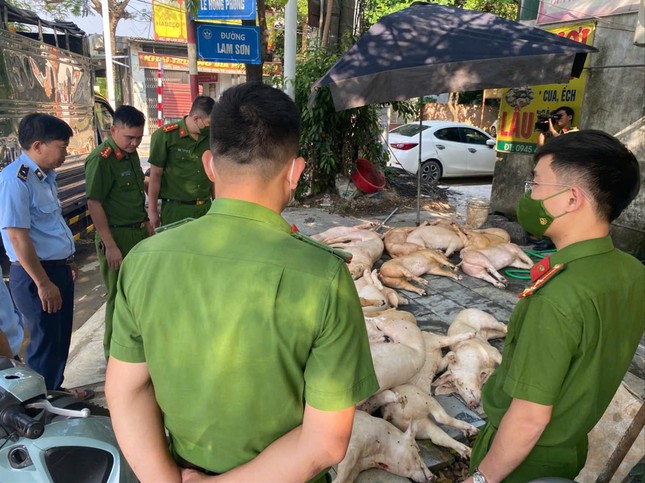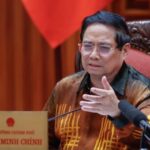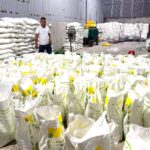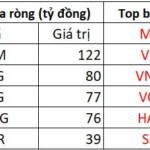
A recent case of unexplained dead pig consumption was discovered by the Market Management Agency and the Police. Photo: Nguyen Bang
Many loopholes in the healthcare sector’s management
In response to Tien Phong Newspaper’s inquiry, a veteran expert in commerce and market management affirmed that for any product related to food and health, such as milk, medicine, and dietary supplements, the healthcare sector has an indispensable responsibility for pre-emptive and post-market management and supervision. It is the responsibility of the healthcare sector to grant permits to businesses and organizations producing a particular food item, medicine, or milk, as well as to inspect food safety from street vendors, shops, supermarkets, and even five-star hotels.
Recent cases involving the detection of contaminated food, counterfeit medicine and milk, dietary supplements of unknown origin, and various types of mixed creams by authorities reveal the healthcare sector’s lax management. The complicity of numerous healthcare and food safety officials also came to light following these recent arrests.
Apart from the healthcare sector, other forces, including the police, border guards, market management, and local authorities, are also responsible for coordinating efforts to combat counterfeit, substandard, and unknown-origin goods that affect people’s health. In reality, when authorities simultaneously launch campaigns to crack down on contaminated food and unknown-origin goods, the market immediately experiences a shortage of supply, and advertisements by individuals and organizations on social media platforms rapidly decline. Thus, the battle against contaminated food and counterfeit goods is an ongoing and endless war due to the constant emergence of new variations.
“Despite knowing that they will eventually have to pay the price, individuals and organizations engaged in the trade of contaminated food, counterfeit, and substandard goods will still plunge into this field due to the enormous profits it generates. Fighting counterfeiting is like battling a headless octopus; cut off one tentacle, and another will grow in its place. It only takes the bribery of officials and civil servants for criminal groups to resurface,” the expert shared. He proposed significantly increasing the penalties, both monetary and criminal, to create a stronger deterrent effect, as the current penalties are considered lenient, leading many individuals to willingly pay the fine when caught producing counterfeits.
To eradicate the issues of contaminated food, counterfeit milk, and fake dietary supplements, the expert emphasized that ministries, sectors, and authorities must first fulfill their responsibilities in intensifying the scrutiny and perfecting the legal framework regarding state management and the inspection and handling of violations. Among these, the healthcare sector plays a particularly crucial role in ensuring product quality, seriousness in content review, product evaluation, and licensing. If the healthcare sector rigorously controls the quality of inputs and diligently inspects food hygiene and safety, other forces won’t need to “chase after” and prevent these issues.
Along with the responsibilities of the healthcare sector, what about the market management’s accountability regarding the proliferation of counterfeit, imitation goods in the market? The expert acknowledged that the market management force currently cannot manage all commodities. This stems from two factors: human resources and a lack of functions and implementation tools.
“Given the organizational structure, each market management team only has a few members, with some places having only one or two people responsible for a vast area and specialized fields. Therefore, managing all commodities is impossible. In terms of expertise, market management is only responsible for inspecting the paperwork of goods at the input and output stages and does not have the expertise to analyze and inspect commodities in other fields such as safety and veterinary inspection. Sample collection for testing or specialized inspection requires collaboration with other forces, as market management does not have this function, leading to many cases where they are “powerless.” When violations are discovered, they can only impose administrative sanctions and propose criminal handling. This is also a limitation of this force,” the expert admitted.
“Recently, our company has coordinated with several competent authorities to detect numerous counterfeit bird’s nest products of the Khanh Hoa Bird’s Nest brand. When scanning the QR code of these counterfeit products, no information is revealed. The packaging information displays a production location, but when the authorities inspected it, it turned out to be just a place for label gluing. For counterfeit bird’s nest water products, the information on the packaging typically indicates a very high bird’s nest content, ranging from 20% to 70%, but the selling price is only a few tens of thousands of VND per bottle, while our actual testing revealed that the bird’s nest content in these bottles was only a few percent.”
Mr. Nguyen Manh Thang – Director of the Northern Branch of Khanh Hoa Bird’s Nest Company
Clearly defining the responsibilities of organizations and individuals
Regarding what consumers should do amid the rampant issues of contaminated food, fake medicine, counterfeit milk, and goods of unknown origin, Mr. Tran Huu Linh, Director of the Department of Domestic Market Development (Ministry of Industry and Trade), shared his thoughts with Tien Phong Newspaper. When purchasing goods, consumers should opt for reputable and trusted brands widely favored and voted for by other consumers, especially when buying online. Consumers should avoid products with abnormal colors, shapes, odors, or unusually low prices. Only buy products with clear and distinct labels that provide comprehensive information about quality, origin, and ingredients. Consumers can also perform rapid product checks through the manufacturer’s hotline on the product packaging, information on the company’s website, or by searching for the company’s information on public websites of tax authorities, market management, or the National Office of Intellectual Property.
Mr. Linh emphasized that clearly defining the responsibilities of organizations and individuals in controlling and managing food safety would help pinpoint the culprits and prevent blame-shifting, as witnessed in recent cases involving the detection of large-scale production and importation of fake milk, medicine, dietary supplements, and contaminated food into Vietnam.
The King of Fruits: Unveiling the Truth Behind Ninh Hiệp Market’s Fake Goods Frenzy
The International Finance Center has achieved success, and there’s been much buzz around it; meanwhile, delegates expressed concern over the open sale of counterfeit and knock-off goods at Ninh Hiep Market. Over 10,400 employees of the Ministry of Finance took early retirement, and a shocking discovery of contaminated durians with banned substances was made. Additionally, a proposal for minimum wage adjustments post-provincial mergers has sparked interest. These are the notable highlights from the past week, capturing the attention of many.
Unveiling the Truth: Inside the Alleged Fake Fertilizer Factory in Dong Nai
In early 2025, authorities in Dong Nai uncovered a counterfeit fertilizer operation, seizing nearly 20 tons of raw materials and fake products. This discovery sheds light on the illicit activities that threaten the agricultural industry and underscores the importance of vigilant monitoring to protect farmers and consumers alike.
“Prime Minister: Exploring an Expansion of Social Housing Policies for Larger Families”
“The Prime Minister has suggested implementing policies to encourage childbirth, such as expanding social housing policies for larger families and vulnerable individuals with children. This proposal aims to address the challenges faced by those with larger families and ensure they have adequate housing support.”











































